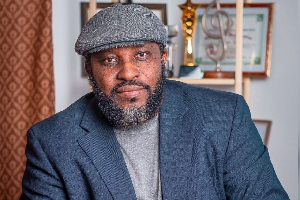Orangeburg, SC
8th February, 2014
This week, Parliament marked the 49th anniversary of the death of one of Ghana’s founders, J.B. Danquah, in prison. The 69 year-old died from the harsh conditions that exacerbated his health, in prison. After his second detention on 8th January, 1964, he was subjected to harsh treatment, including chaining and being deprived of a bed for some time. Indeed, upon his death, there was so much fear in Ghana that it was left to a lone Commonwealth Hall student and Nigeria’s President, Nnamdi Azikiwe, to eulogize him. Let no one try to mitigate our shame by pretending that Danquah died of natural causes. His death will stain Nkrumah’s life and our collective conscience, forever. Anyone who thinks imprisonment had nothing to do with Danquah’s death should talk to Tsatsu Tsikata about the effect imprisonment can have on one’s health. Mandela would not have lasted 27 months in that prison—let alone 27 years. When NDC legislator Murtala Mohammed stated that Danquah died of natural causes, one of the NPP MP’s should have punched him on the nose and then hugged Bagbin for his maturity and commonsense. As for Prof. Akosah’s defense of the PDA, it shows how intellect can be tragically mis-applied in the service of ideology. It was a very, very low point in the Prof’s distinguished career. That kind of warped thinking has led to political victimization all across the world and throughout history.
Unfortunately, political justice—or more to the point—injustice, did not start or end with Danquah. Since then, there have been the murder of the judges in 1982, the “Kume Preko” murders, the Kumbungu murders, the Mobilla murder and numerous other such examples that even though not leading to death, have besmeared our democracy. Today, as I write, five NPP activists, Yahuza Yakubu, Abiba Dagbana, Majeed Alhassan, Alhassan Sayibu and Imoru Gundaana, are at Ankaful prison with the first awaiting execution and the others serving live imprisonment—for the alleged murder of an NDC activist, Rasheed Alhassan, during disturbances in Tamale on 17th February, 2009. We must send to the family of the late Alhassan, the apologies and condolences of all Ghanaians. Now, I have no certainty that they are innocent—they may be guilty. However, there are very few people who believe that these young men would be in prison if the NPP had won the 2008 elections. Instead of these, some NDC activists might be facing justice instead, from the same disturbances. Indeed, the killers of Ahonu Hungar and others during “Kume Preko” have never been brought to justice and neither have the Kumbungu murderers of NPP activists or the perpetrators of violence in Agbogbloshie, Akwatia and other places. Indeed, those who organized thousands of activists on a march to the offices of the EC to intimidate members of the Commission in 2008 and set up a “Heroes Fund” to encourage political violence are now comfortably ensconced in government.
There is a need for national soul-searching. There is something wrong when men and women who want to participate in politics can end up dead, like our founder Danquah, NDC activist Rasheed Alhassan or the “Kume Preko” activists Ahonu Honger and others, Mobilla and the Kunbungu four or in prison—like the NPP activists.
Unfortunately, in the case of the young men, the old men who urge them on with incendiary language face no sanctions at all when things go wrong. Indeed, when things go wrong, the youth are more often than not abandoned to their fate. When they die, there is little interest in the pursuit of justice. It is unacceptable that the killers of “Kume Preko” were never punished.
Ultimately, we should have a national consensus that will end this unfortunate perversion of justice that continues to besmear our nation.
Here are some steps we can take:
First, re-evaluate the case of the NPP five or try NDC activists who were involved in violence in Tamale, Agbogbloshie and Akwatia since 2008.
Second, begin holding accountable politicians who incite the youth to violence—on all sides--by trying them alongside the youth they incite.
Third, educate our youth to seek advancement in the professions before entering politics. It is important for our youth to struggle over and debate Google rather than guns or technology instead of toilets.
Fourth, our politicians must stop sending other people’s children to do things they will not send their own children to do in the name of politics and in pursuit of victory.
As Danquah told those who wanted him to flee the country, “If not I, then who, If not now, then when?” He would not ask others to take risks he was not prepared to take. And therein lays his enduring greatness.
Finally, we must consider the establishment of a “Martyrs of Democracy Square” to honour all those who have died in pursuit of a more democratic Ghana.
Let us have true “Freedom and Justice” that has no political colours and will be timeless--- together.
Arthur Kobina Kennedy
Opinions of Sunday, 9 February 2014
Columnist: Kennedy, Arthur Kobina
Political justice
Entertainment













